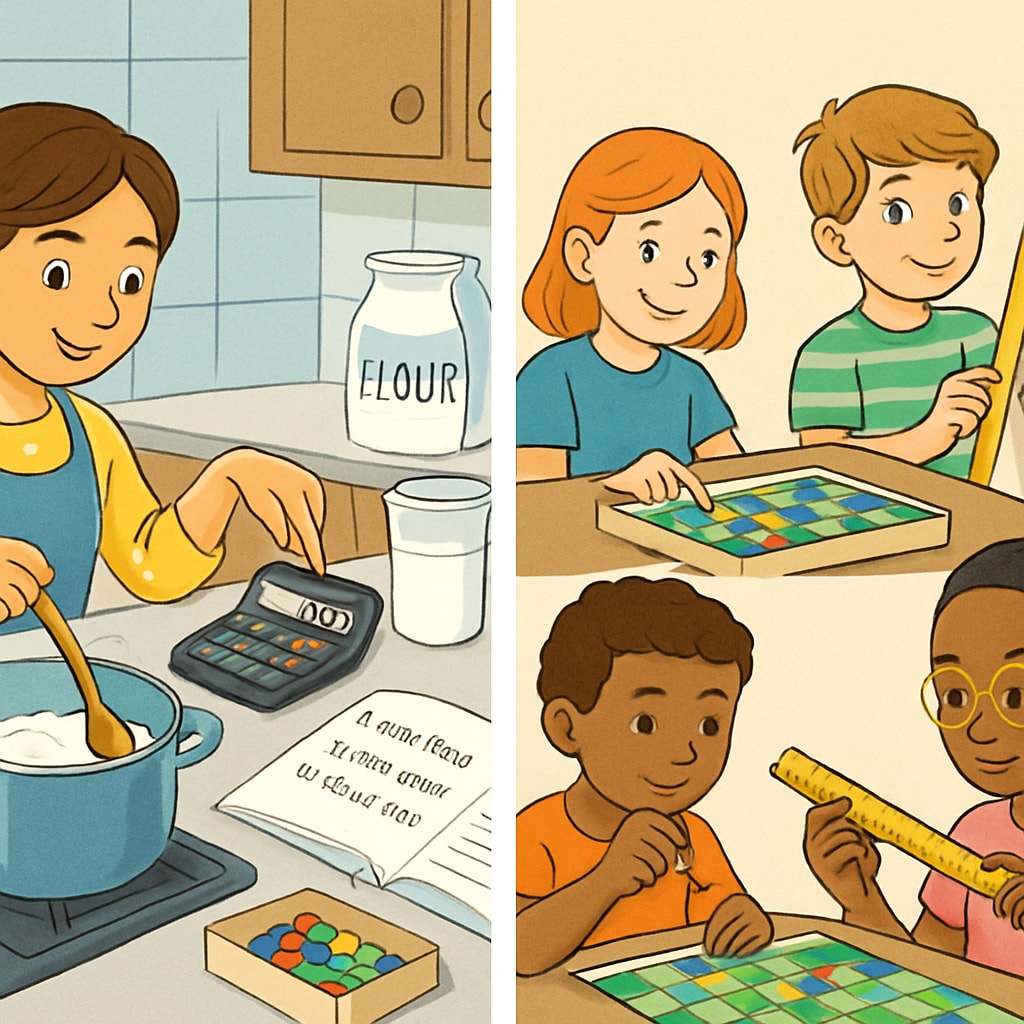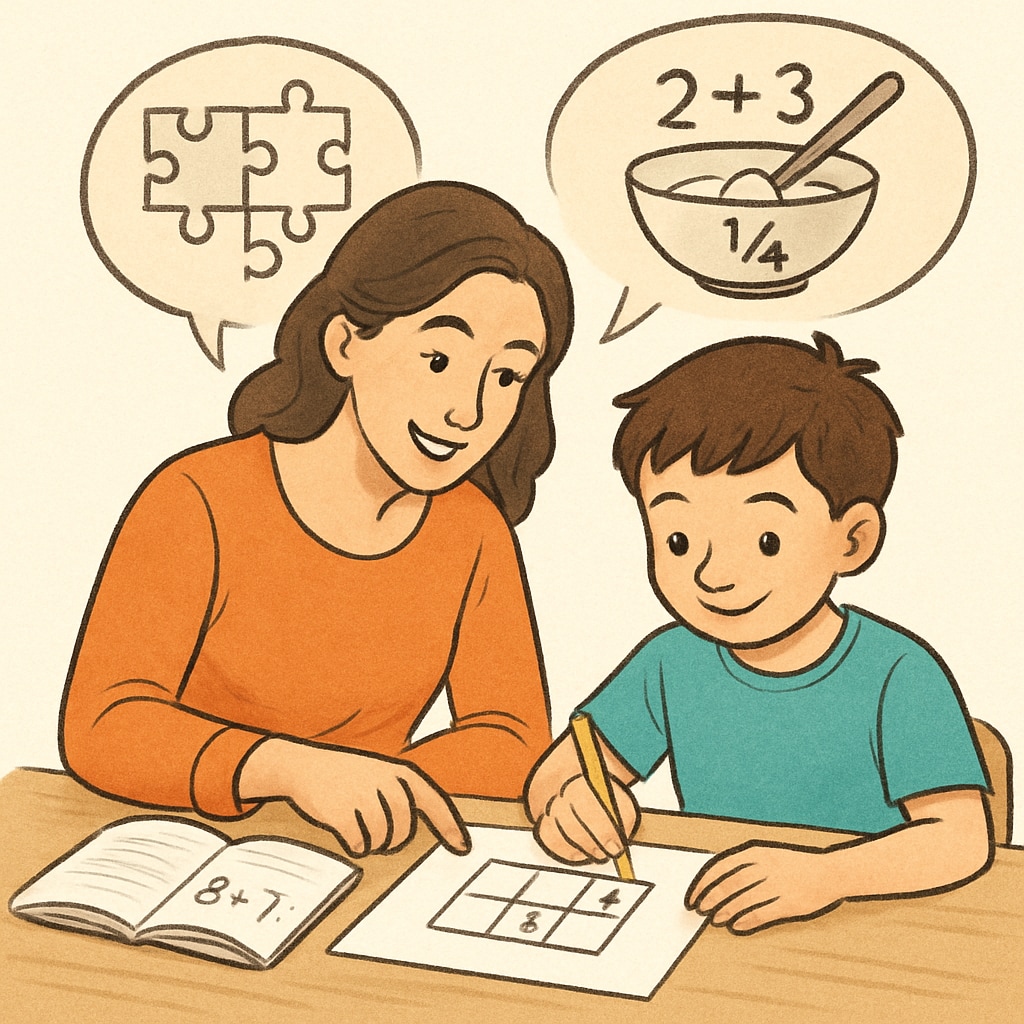When children question the importance of math, asking, “Why do we need to learn math?”, it can catch parents and educators off guard. These seemingly simple inquiries often highlight gaps in our approach to math education, learning motivation, and communication. To make math meaningful, we need to go beyond dull, traditional answers like “It’s useful for jobs” or “You’ll need it for tests.” Instead, we should provide compelling, relatable explanations that resonate with children’s experiences and emotions.
Why Traditional Answers Fall Short
Many adults instinctively respond to such questions with practical or career-based reasoning: “You’ll need math to manage money” or “It’s essential for certain professions.” While these answers are valid, they often fail to spark curiosity or enthusiasm in young learners. Children may not yet feel the urgency of managing finances or pursuing technical careers. Therefore, these explanations might seem disconnected from their immediate reality.
Moreover, focusing solely on future utility overlooks the deeper value of math as a tool for critical thinking, problem-solving, and creative exploration. Without connecting math to their lives today, children may perceive it as a tedious chore rather than an empowering skill.

Strategies for Inspiring Intrinsic Motivation
To help children understand the importance of math, we need to focus on building intrinsic motivation—where they see math as valuable and enjoyable. Here are three effective strategies:
- Use Real-Life Examples: Apply math to everyday situations that children encounter. For instance, show them how fractions are used in baking cookies or how multiplication helps in counting their toys. Real-world applications make math relatable and tangible.
- Personalize the Learning Journey: Tailor explanations to each child’s interests. A sports enthusiast might appreciate learning about statistics in basketball, while a budding artist might find joy in exploring geometry through drawing and design.
- Build Emotional Connections: Share stories about how math has positively impacted your life or others. For example, you could talk about how mathematical problem-solving helped you make better decisions or design something meaningful.

Connecting Math to Broader Life Skills
In addition to practical applications, emphasize how math nurtures essential life skills like logical reasoning, decision-making, and perseverance. For example:
- Critical Thinking: Math teaches children to evaluate situations, analyze patterns, and arrive at logical conclusions. These skills are invaluable in all areas of life.
- Problem-Solving: Tackling math challenges builds resilience and fosters a growth mindset, helping children understand that mistakes are part of learning.
- Creativity: Math isn’t just about numbers; it’s also about discovering innovative solutions and visualizing abstract ideas.
By illustrating how math extends beyond school and into their personal growth, children gain a broader appreciation for its value.
Effective Communication for Parents and Educators
Addressing children’s questions about math requires thoughtful and engaging communication. Here are some tips:
- Be Patient: Take the time to understand their concerns and curiosity. Avoid dismissing their questions as trivial.
- Ask Questions: Encourage dialogue by asking them how they think math could be useful or interesting. This invites them to explore the subject actively.
- Stay Positive: Highlight the fun and rewarding aspects of math, such as solving puzzles or discovering patterns in nature.
With these techniques, parents and educators can foster a supportive environment where children feel excited to learn math, rather than obligated.
Conclusion: Making Math Matter
When children ask, “Why do we need to learn math?”, it’s an opportunity to transform their perspective. By using real-life examples, personalizing their learning experiences, and connecting math to broader life skills, we can inspire them to see its true value. Effective education communication is key to ensuring that children develop a positive relationship with math—one that empowers them for years to come.
Ultimately, math is more than equations and formulas; it’s a gateway to curiosity, creativity, and problem-solving. With the right approach, we can help children unlock its potential and embrace it with enthusiasm.


